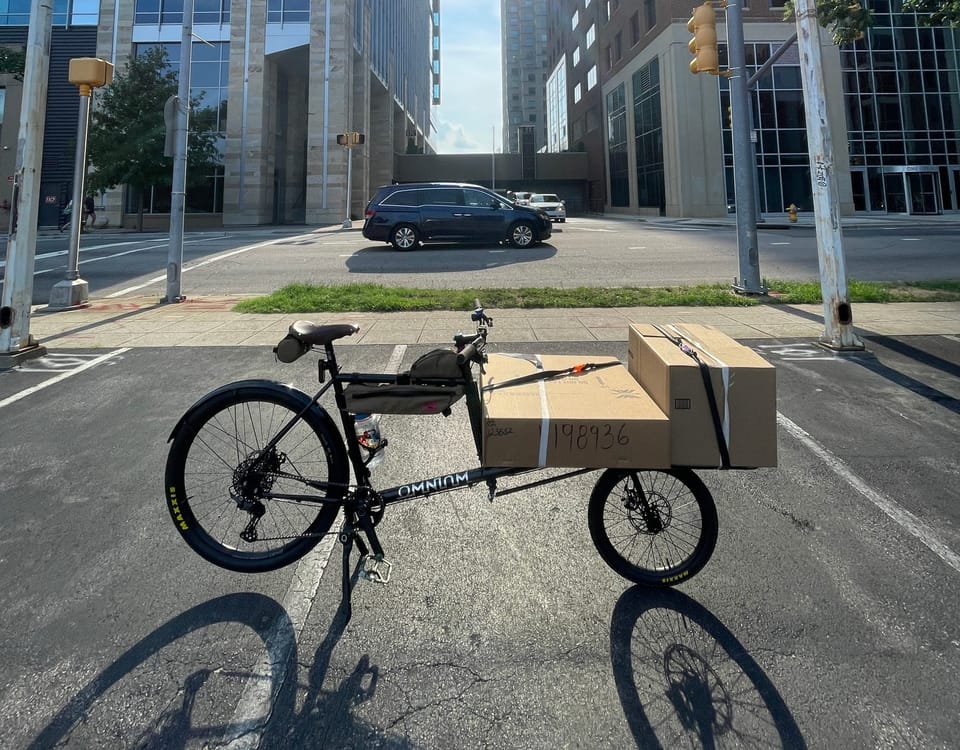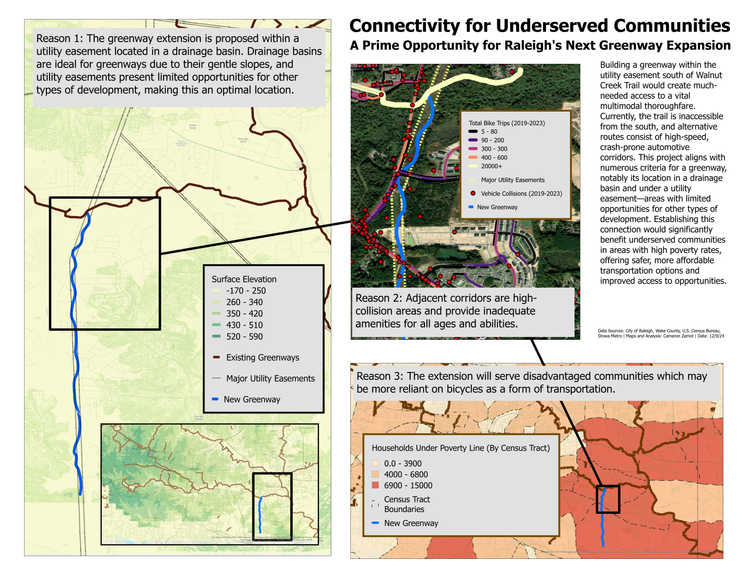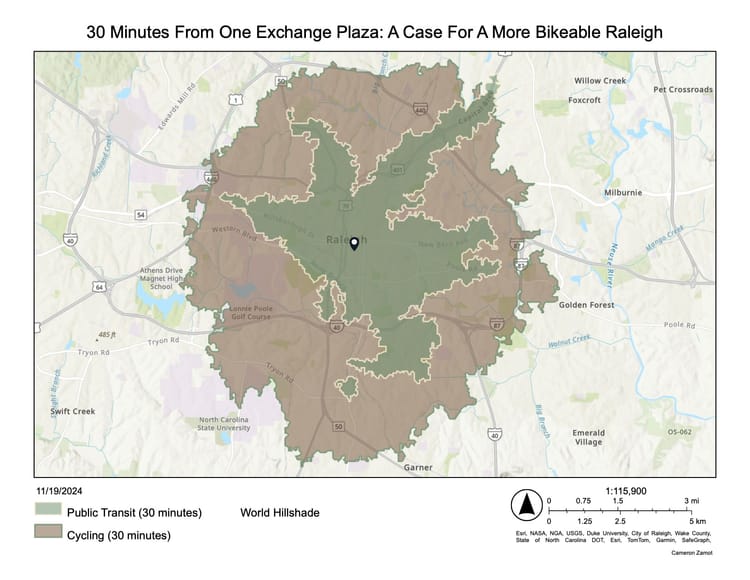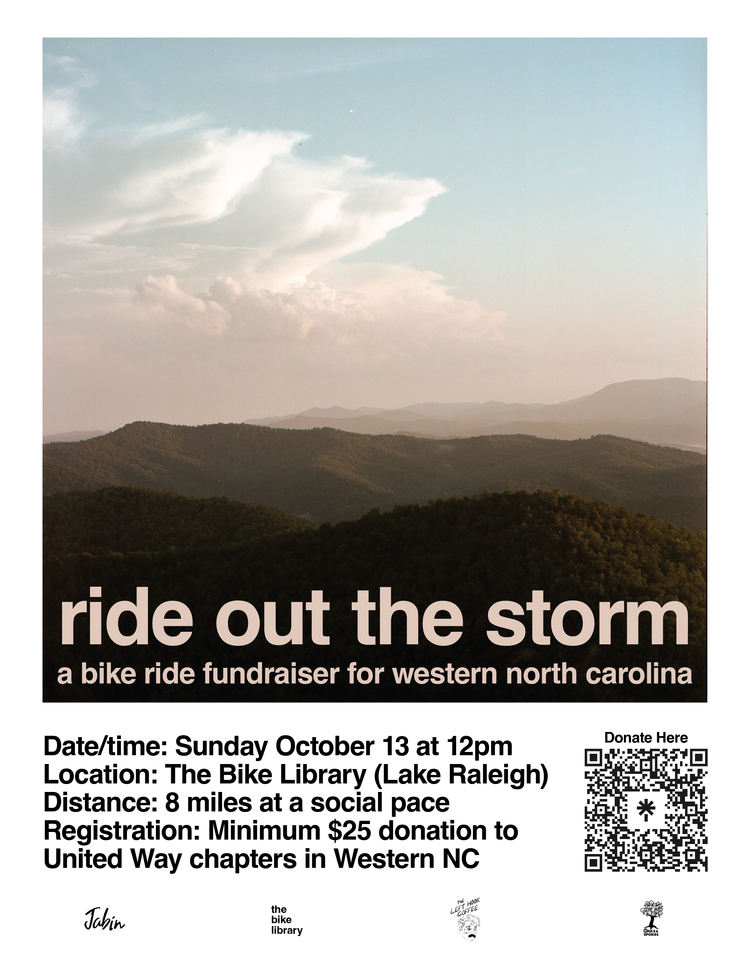Car-free zones in Raleigh might help boost its post-pandemic economic recovery.

Recently, I met with two NC State students over coffee to discuss using The Bike Library as an event space for the university's sustainability program. I had given a presentation at one of their club meetings earlier this year, and they reached out to explore a partnership. We decided to meet at Jubala on Hillsborough.
Kirk arrived at the scheduled meeting time, but after sitting with him for ten minutes and wondering where Adrienne was, I realized I’d accidentally scheduled the meeting thirty minutes earlier than we had agreed to. She was still on her way from Chemistry lab. Silly me. Not the first time I've done that, either.
While we waited, Kirk and I chatted about biking in Raleigh. He had biked to Jubala that day, still sweating from the unusually warm October afternoon. He told me it was his first off-campus ride in a long time. I asked him what he thought about biking in the city, and then I just listened.
Cars, he said, were his biggest concern. In Ross Bassett’s Cycling Cities class—which had inspired him to bike more—many students said they were hesitant to ride because of cars. On campus, Kirk said he never wore a helmet, but biking to Jubala, he did. It made him feel safer among the fast-moving traffic and distracted drivers, who split their attention between their phones and the road.
Like many other NC State students (and Raleigh residents as a whole), Kirk avoids driving downtown—maybe because downtown traffic is a nightmare. Many students also just don't own cars.
When it's frustrating or dangerous to get downtown, people avoid going downtown – period. It's too much of a pain to drive and park, and it feels too dangerous to bike. Kirk, like thousands of other students, chooses go to spend his time and money at places that are easier and less frustrating to access.
It’s an important realization: cars keep cars on the road. The current system seems to favor cars over accessible, fair transportation. Imagine if students could ride safely down a multimodal corridor straight into Downtown Raleigh, spending money, bringing energy, and transforming the city into the vibrant, bustling hub we all so desperately want it to be.
What if we banned cars from certain streets in Raleigh?
Over the last few months, we have all heard a lot about the spectacle of the South Street closure, with the vote and subsequent hurdles. One argument against closing it to cars was that it conflicted with national initiatives like the Federal Reconnecting Communities grants, which aim to fix divides created by roadways. But isn't that ironic? The grants are meant to address the damage stroads and highways have carved into our cities.
It's common to point to failures like the Fayetteville St. Mall—which was converted to a pedestrian mall in 1977, just before a time of nationwide high crime rates. Car-free zones could actually bring us together. These spaces have the potential to transform the urban core into areas where people can gather, connect, and thrive.
When Kirk finished, he asked what I thought. I told him I’d get back to him. Now seems like a good time, so here it is:
Riding bikes around cars isn’t fun, but do it anyway. You’ll get more comfortable. You’ll grow more confident. You'll get in better shape than you ever imagined—just from biking to class or the store. Cars will notice you. They’ll notice the other two, five, ten, seventy-six, three hundred, one thousand people on bikes, and they'll start to pay attention. One day, we might become a little more like Paris or Amsterdam. Until then, we'll have to make do with what we have.
Be the change you want to see. Change the world. It doesn’t have to stay like this forever.




Comments ()